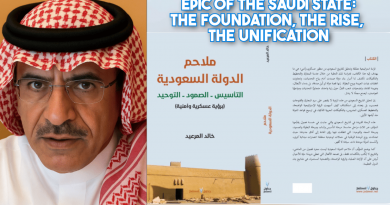‘I need mama, I need school’, migrant child stuck in Bosnia appeals to EU
Reuters
“I need mama, I need school, but Croatian police say: ‘Sorry, go back to Bosnia’” said Hzam.
Fourteen year-old Amim Hzam from Iraq says he has tried to enter European Union member Croatia with his family forty times from northwestern Bosnia over the last two years.
On one attempt about a year ago his mother and one of his siblings got through. They then managed to travel to Germany. But he and his father and two more children were caught by police and sent back to Bosnia.
The family is among more than 8,000 migrants from Asia, the Middle East and North Africa who are stuck in Bosnia, which since early 2018 has become a transit route for those aiming to reach wealthier EU states.
But it has become increasingly difficult to cross EU borders and impoverished Bosnia has become a cul de sac with its ethnically divided government unable to cope. The coronavirus pandemic has seen the EU seal its borders, leaving the migrants with little hope of entering and requesting asylum.
Now Hzam and his siblings learn German, and get sad when their mother calls from Germany and cries.
“I need mama, I need school, but Croatian police say: ‘Sorry, go back to Bosnia’” said Hzam.
Many of the migrants live in tents in the woods or in houses and factories destroyed in the Bosnian war of the 1990s.
Hzam’s family is staying in a furnished house near the border town of Velika Kladusa, belonging to a Bosnian living abroad who agreed with a local charity to provide them with shelter.
The family do not leave the house, for fear of abuse by some local people who resent their presence in the village.
“They are judged when they come out, these houses are actually their hiding places,” said Zehida Bihorac Odobasic, a school teacher and activist who the migrants call “Mother”. She brought Hzam’s family some food and coloured pencils to draw, and helped arrange their accommodation.
“We can’t go outside, we just sit at home,” said Hojjat, a migrant among an Afghan family of five staying in similar accommodation, explaining they could have trouble from neighbours and police.
Even Bihorac Odobasic has received verbal and physical attacks from locals for helping and defending the migrants. She says her complaints to police went nowhere.
Last November, the UN human rights experts called on the Bosnian government to investigate a “smear campaign and death threats” against Bihorac Odobasic and bring those responsible to justice according to international standards, but to no avail.
“Here and now we are witnessing an absolute violation of human rights,” Bihorac Odobasic told Reuters in a forest tent camp covered by snow, where around 50 people were trying to get warm in sleeping bags.
The EU has repeatedly called on Bosnian authorities to provide accommodation to at least 1,000 people sleeping rough during the winter. Since early 2018, the EU has provided more than 88 million euros to help Bosnia manage the migrant crisis.


